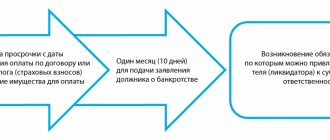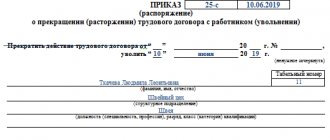The employee is responsible for the money and goods with which he works. To consolidate the obligation on paper, agreements on full financial liability are concluded.
They will come in handy if there is arrears and the employee refuses to pay.
If you prefer legal language, follow the links below, and we will try to explain everything in simple words.
Chapter 39 of the Labor Code of the Russian Federation
Resolution of the Ministry of Labor of the Russian Federation dated December 31, 2002 No. 85
Resolution of the Plenum of the Armed Forces of the Russian Federation dated March 17, 2004 No. 2
Review of court practice on financial liability of employees dated December 5, 2018.
Why do you need an agreement on full financial responsibility of the employee?
Employees are responsible for damage even without a contract. If a person gets a job, he is obliged not to cause harm and to be attentive according to Art. 232 Labor Code of the Russian Federation.
This is limited liability. Limited - because the employee is responsible within the limits of average earnings under Art. 241 Labor Code of the Russian Federation. If he destroys a company car worth 1 million, you can only ask him for a small part of the amount.
The master spilled glue on ten rolls of designer wallpaper. The wallpaper cost 30,000 rubles, and the master’s salary was 20,000 rubles. This means that the employer will pay 10,000 rubles from his own pocket.
In Art. 243 of the Labor Code of the Russian Federation there are exceptions. If an employee caused damage while drunk, acted out or stole, he still pays the full amount. But another problem arises: to prove that he was really drunk or that it was he who stole.
According to the contract, the employee pays in full
The agreement on financial liability removes the restrictions of the Labor Code. The employee compensates for as much damage as he caused, without reducing the amount to the amount of one salary.
What is the basis for financial liability?
It occurs when the following conditions are met:
- direct actual damage caused to the injured party;
- the action (inaction) that caused the damage is illegal;
- a clear connection between the action and the damage caused;
- the fault of the person who violated the contract.
The actual existence and extent of damage, and other above-mentioned conditions must be proven by the victim.
A party to an agreement may be held liable if all conditions exist simultaneously.
General limitations on full liability
Of course, the employer does not recover damages absolutely freely. There are still restrictions, this is stated in the Review of Court Practice dated December 5, 2018.
Real damage
The employee only pays for actual damage to the employer - Art. 238 Labor Code of the Russian Federation. This is a lack of money, spoilage of food, theft, payments for customer claims or fines from government agencies. Lost profits cannot be recovered from an employee.
The courier lost tablets worth 100,000 rubles, which he was delivering to a client. The employer had to order new ones and cancel the planned purchase for another 500,000 rubles. The disappearance of tablets is real damage, and the employee is responsible for it. A failed order and subsequent sales are lost profits that the employee should not compensate.
Reduction of the amount by the court
The court has the right to reduce the employee's debt. It takes into account what the employee's salary is and whether anyone else was at fault for the damage. An exception is if a person committed a crime: he stole money or organized the sale of goods to a third party. Then the amount cannot be reduced according to 250 Labor Code of the Russian Federation.
The court does not give a discount to everyone. Whether it will happen depends on the skill of the worker during the process.
Employee's fault
You cannot take money from an employee if he is not guilty - Art. 233 Labor Code of the Russian Federation. The employee is not responsible for force majeure events such as flood, fire and robbery. He doesn't keep track of goods during someone else's shift or at night. All similar circumstances are listed in Art. 239 Labor Code of the Russian Federation.






